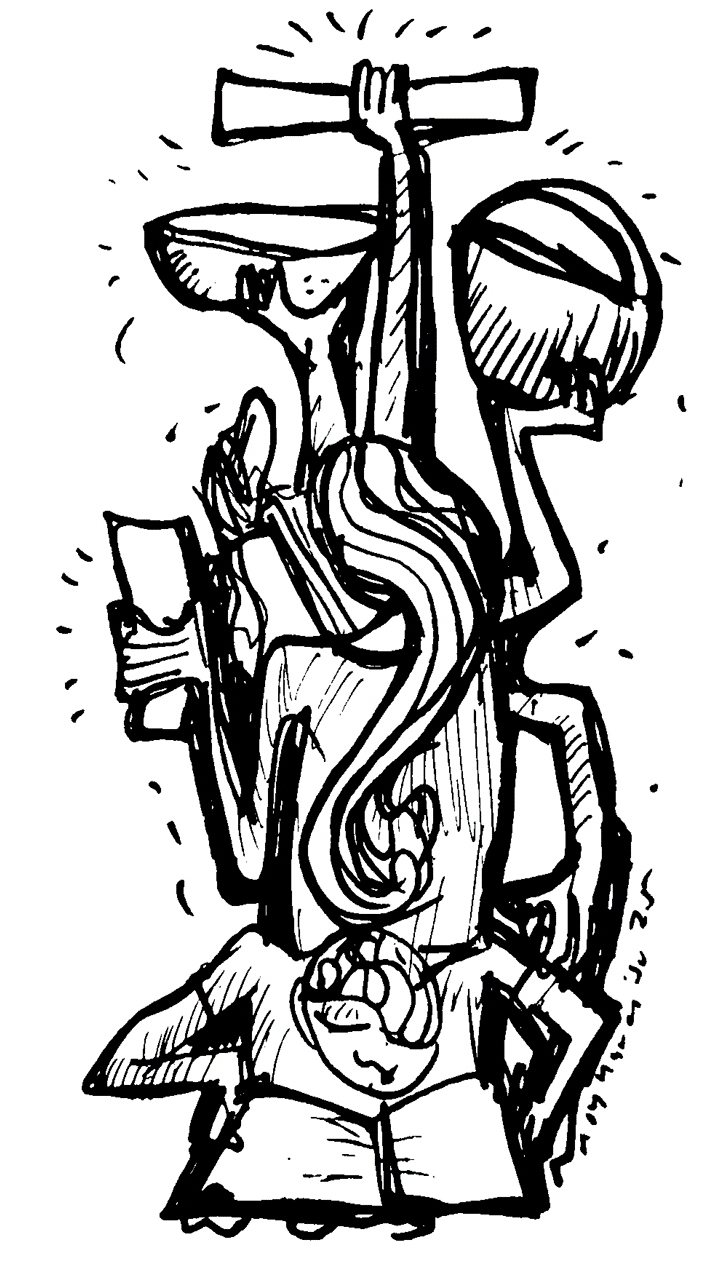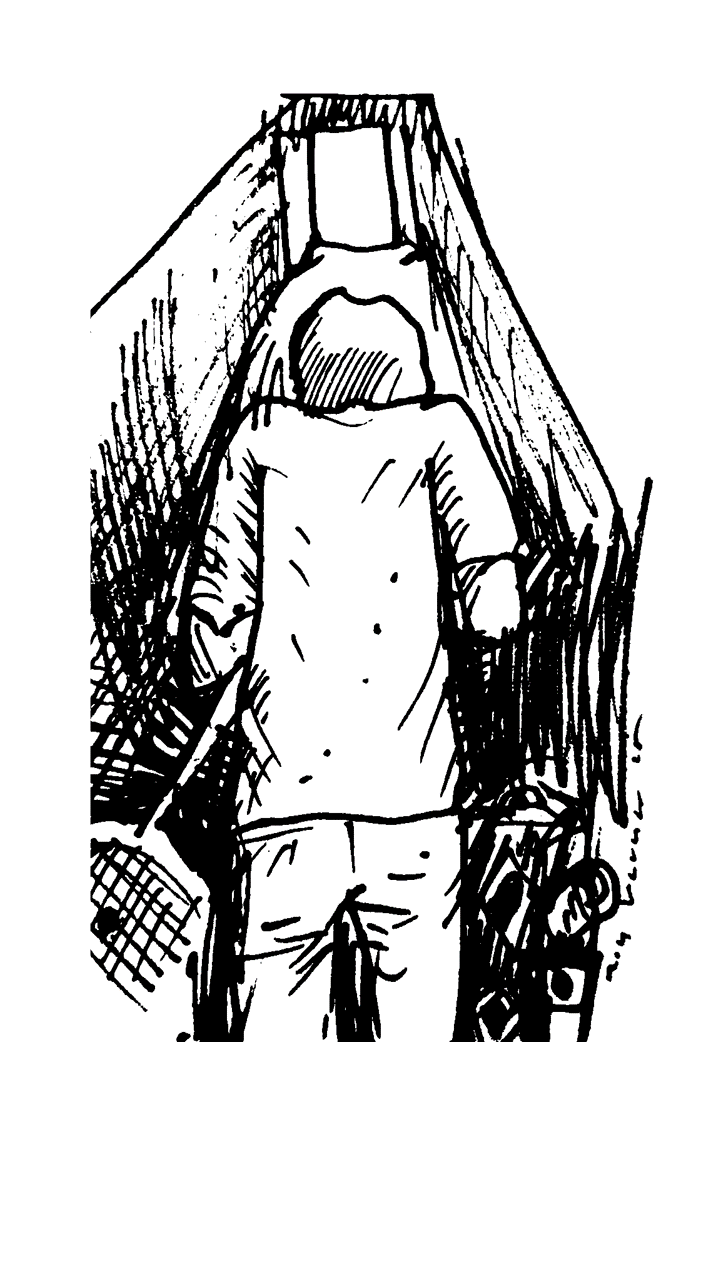Your slumped shoulders silhouetted your spindly frame as you sludged through the hallway on a Monday morning, last week’s Service Awards fermented in your thoughts like souring milk.
Manang, why weren’t you included there?
Fiction by Dhan Durango | August 25, 2025
Your slumped shoulders silhouetted your spindly frame as you sludged through the hallway on a Monday morning, last week’s Service Awards fermented in your thoughts like souring milk.
Manang, why weren’t you included there?
Fiction by Rica Bianca Caangay | July 30, 2025
Nilakaw si Mama. Mangumpra daw sya para sa among tindahan. Hurot na ang tsitsaron nga orange. Hurot na pud ang sardinas. Naa pay noodles pero gamay na lang pud.
Gisirad-an sa ni mama ang tindahan. Dili pa daw ko pwede magbantay. Dili pa ko kabalo muihap og kambyo. Katong nipalit og isa ka sigarilyo si Angkol Mario kay gikambyohan nako syag singko. Piso ra diay dapat to. Nalipat ko.
Ana si mama kay mubalik dayon siya. Sa duol ra daw sya mangumpra. Isa lang daw ka sakayan. Magpakyaw ra pud daw sya og tricycle pauli kay basin magbaguod daw sya sa iyang bitbit. Maghulat ra daw ko niya.
Poetry by Jonna Rhen Degamo | June 23, 2025

You always find a way
when everybody else fails to do so
How you humble yourself and ask for help
when we have nothing on the table
or when I don’t have money for school
How you always think of me in every place you go,
even in celebrations I couldn’t attend
So you keep a portion of your food and bring it home
Continue reading You Always Do
Poetry by Gine Mae Lagnason | June 23, 2025
—Madalíng isísi ang sála sa ibá,
Mahírap pigílin ang luhà sa matá.
Ang sayá sa malî ay sadyâ ng tadhanà.
Ang lumbáy sa hulí ay gantí ng gabà.—
Madalíng iwaksí ang saríling sála,
Isísi sa ibá ang pasáng parúsa.
Ngúnit káhit tákas ang pípi’t may bátik,
Ang puwáng ng luhà’y sa púso’y didikít.
Poetry by Raphael Luis J. Salise | June 23, 2025

When my prayer reaches heaven
I hope it makes its way to you
You’d find it folded like a letter
Sealed and stamped from DJ 2.
How are you feeling, Papa?
It must be warm and sunny up there
No more medicines, no more tears
No more pain for you to bear.
Editor's Note by Dominique Gerald Cimafranca | June 17, 2025
It has been six months since the last update to the Dagmay web site. The last entry, as of this writing, was dated December 30, 2024.
I am sure many of you are wondering if the web site will ever resume updates, not to mention catching up to its backlog of the last half year. Unfortunately I have no answer to either. I am now merely the technical host of the site and I no longer manage its content. To my knowledge, the Davao Writers Guild continues to send works for print publication in the Sun Star Davao newspaper.
For inquiries and entreaties as to resuming publication online, please message the Davao Writers Guild Facebook page.
Poetry by Alyssa Ilaguison | June 2, 2025
You were told to wear the blue one-piece
because the two-piece seemed too much.
The instructor’s whistle sliced the air,
marking time with each sharp note.
You lined up at the pool’s edge,
feet flat against the concrete lip,
waiting for the water to strip you bare.
The water is not cold.
It is just unfamiliar.
She says, blow bubbles through your nose,
says it’s easy to breathe underwater.
Says kick, not like a horse, but like
you love the floor leaving.
No one tells you
that swimming begins with surrender.
That you must let your body forget
it was built for land.
She says arms like windmills,
says float like a leaf,
but leaves only ever
go limp in gutters.
Week one,
you tread water like prayer,
each movement a question
you’re afraid to ask out loud.
Week two,
a boy says you swim like
you’re drowning.
You let the words sink.
Think: same thing.
Think: he doesn’t know
what it means to look up
and still not breathe.
Your mother in the bleachers
folds and refolds a towel on her lap.
You curse her under your breath.
That summer, she told you
God watches even when you’re underwater.
Week three,
your legs cramp mid-lap.
You clutch the pool’s edge,
gasping like something
trying to be born again.
The instructor says, breathe,
but you can’t tell what part of you
is water and what is panic.
That night, you dream
you forget how to float.
You wake up sore
in places no one sees.
By week four,
the instructor slides a foam noodle
beneath your belly
like a secret you’re finally allowed to hold.
She says, trust it.
But you’ve spent years
tightening your spine,
so nothing slips in or out.
You clutch the foam
like a maybe, like permission.
You glide the pool’s length.
They clap like it’s victory.
But all you feel
is the quiet of your own limbs
doing what they were told.
You learn to shake the water from your ears
without flinching.
You learn no one rescues you
unless you pretend not to need it.
You learn the deep end
is not a punishment
if you never ask for help.
Later, when a boy asks
why you don’t like beaches,
you’ll say the sand.
You’ll say shells pricking your soles.
You won’t mention
how the ocean has no edge,
how it keeps pulling,
how it waits beneath you
quiet as a whistle,
watching,
just in case you forget
you were never meant to float forever.
Alyssa Ilaguison, a 4th-year BA Communication and Media Arts student of UP Mindanao.
Play by Jann Dainver L. Maravilla | May 5, 2025
MGA MANDUDULA
AKAT – rebelde nga anak, bana ni Saling
SALING – asawa ni Akat
NGUDUN – igsoong lalaki ni Akat
INA – Inahan ni Akat ug Ngudun
TAGBOANAN
Muabot sa ilang payag nga samaran ug nagkadugo gikan sa enkwentro sa mga sundalo sa pinaka bukid nga parte sa Sindang. Tagboon kini sa iyang inahan ug asawa nga si Saling ug atimanon.
INA:
Pastilan… Day, Saling! si Akat!
AKAT:
(nagbaguod sa kasakit sa mga samad)
Ina… Kumusta kaha mo ngari atong dakong baha?
SALING:
Do, nganong ni pugos man jud ka ug kuyog nila , Do!?
AKAT:
Ling, ayaw sa ko pangutan-a ana … ayaw sa ‘ron… para asa maning mga baud diri?
SALING:
Nipauli nalang unta ka, Do, oi?
INA:
Kanus-a man gyud ka mupauli, Dong?
AKAT:
Asa si Ngudun?..
INA:
Hangtud kanus-a man tawon mi magtagad nimo?
AKAT:
Si Kapitan ang atong pangutan-on…asa man siya karong panahona?
SALING:
Ipasirado man daw niya ang minahan…. Continue reading Baud